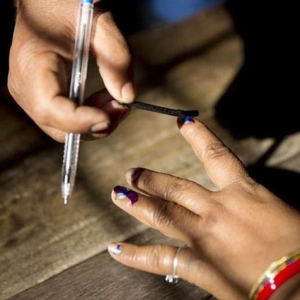
.jpg) Dr. John Singarayar
Dr. John Singarayar
.jpg)
The Church's response to the Indian general election in a pluralistic world should be multifaceted, reflecting its commitment to social justice, religious freedom, and the common good. The following are some of the ways it might respond:
First, the Church should stress the importance of upholding democratic principles and ensuring fair and transparent elections. It should advocate free and fair electoral processes that allow all citizens to participate regardless of their religious, ethnic, or social background. This would involve condemning voter suppression, intimidation, or electoral fraud.
Second, the Church should call on political leaders and parties to prioritise the well-being of all citizens, especially the marginalised and vulnerable. It should advocate for policies that promote social justice, economic equality, and the protection of human rights. The Church should speak out against corruption and the misuse of power for personal or partisan gain, urging leaders to govern with integrity and accountability.
Third, in a pluralistic society like India, the Church should emphasise the importance of religious freedom and tolerance. It should condemn any attempts to marginalise or discriminate against religious minorities and advocate for the protection of their rights to worship, practice, and express their faith freely. The Church should also encourage interfaith dialogue and cooperation to promote mutual understanding and respect among religious communities.
Fourth, the Church would address issues of social inequality and injustice that often intersect with political dynamics in India. This would involve advocating for policies that address poverty, caste discrimination, gender inequality, and access to education and healthcare. The Church would emphasise the inherent dignity of every human person and call for policies that promote the common good and the flourishing of all members of society.
Fifth, the Church should engage in voter education and mobilisation efforts to encourage citizens to participate in the electoral process responsibly and thoughtfully. This would involve providing information on candidates and their platforms and educating voters on their rights and responsibilities. The Church should emphasise the importance of voting as a civic duty and a means of shaping the nation's future.
Sixth, the Church should offer pastoral care and support to communities affected by the political process, particularly those who may experience violence, discrimination, or marginalisation. This includes providing spiritual guidance, counselling, and practical assistance to individuals and families facing hardship or uncertainty.
Lastly, the Church should continue to pray for the nation and its leaders, asking for wisdom, courage, and compassion in exercising governance. It should call on all citizens to work together for the common good, transcending partisan divides and embracing the values of solidarity, justice, and peace.
In summary, the Church's response to the Indian general election should be based on its commitment to democracy, social justice, religious freedom, and the common good. It should advocate for fair and transparent elections, prioritise the needs of the marginalised, promote religious tolerance and interfaith dialogue, address social inequality, engage in voter education and mobilisation, offer pastoral care to affected communities, and pray for the nation's well-being and the guidance of its leaders.